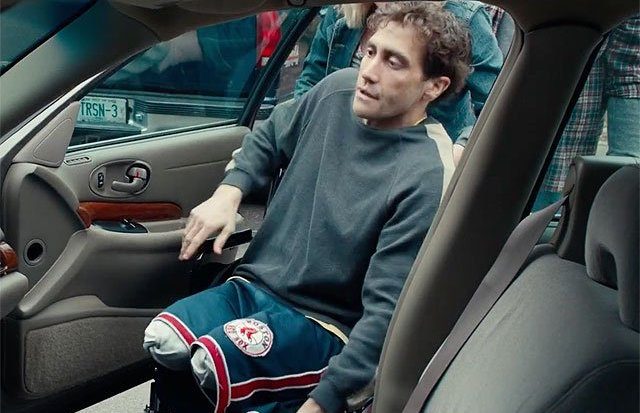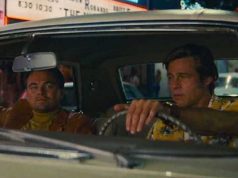
“Stronger” isn’t the first film about the 2013 Boston Marathon bombing, but it is the first to earn its emotions legitimately, and the first that’s not an insult to the victims. Directed by the diversely talented David Gordon Green, who’s made everything from stoner comedies to introspective character dramas, this is a moving true story focused on 27-year-old Jeff Bauman, who became a national hero after he lost his legs in the blast and helped identify one of the killers.
Jeff, played by a curly-mopped Jake Gyllenhaal, is presented as a kind, eager man who still lives with his mom (Miranda Richardson) and fits the mold of Boston denizens as established by the movies: he’s superstitiously obsessed with the Red Sox (they lost two in a row because he wasn’t watching!), and he swears like a sailor. He works at Costco, where he’s well liked, and he gets everybody at his neighborhood bar to contribute to the fundraiser that his ex-girlfriend, Erin (Tatiana Maslany), is doing in conjunction with running the Marathon.
Jeff and Erin have broken up a few times, it seems, but it never quite takes. Unable to resist his enthusiasm, she’s more amused than annoyed when he insists on being at the finish line to cheer for her, waving a sign he made himself. When Jeff wakes up in the hospital hours later, groggily remembering the bomb, he asks about Erin’s safety before anything else. The film is centered on Jeff’s personal journey and recovery, but it allows that his relationship with Erin, rekindled by the drama, plays a significant role in both.
“Stronger,” based on the book Bauman co-wrote with Bret Witter, adapted for the screen by John Pollono, is steeped in Boston’s colorful speech patterns (“Go f*** yourself” is something parents and children say to each other), its provincialism, and its use of sporting events as community catharsis. Green, who was born in Arkansas, raised in Texas, and went to college in North Carolina, treats all of these cultural peculiarities with sensitivity, even when they result in absurdities like Jeff’s best friend, Big D (Nate Richman), breaking the news to him in these words: “Theah was an explosion. Ya f***in’ legs? Theah gone, bro.” There is likewise deep humanity in a scene where a representative from Jeff’s job (Danny McCarthy) nervously approaches the extended family at the hospital with news about his insurance coverage, and blue-collar defensiveness melts into compassion.
Gyllenhaal, who is seldom less than excellent in anything (particularly my dreams), is especially fine as the resilient Jeff, who’s good-humored and upbeat but shell-shocked by what happened. He goes through the expected dark times, drinking too much (enabled by his lush mother), slacking off on his physical therapy, pushing Erin away out of self-pity. But Gyllenhaal avoids the clichés often found with these tropes, giving us a character whose flaws and reluctant heroism feel authentic. This is bolstered by an extraordinarily powerful scene of Jeff’s bandages being changed for the first time, the camera focused on Gyllenhaal’s anguished, angry, determined face.
Jeff’s arc isn’t that he overcomes tragedy (although that is also true); it’s that he comes to accept his role in the grand scheme of things as a person whose determination in the face of adversity makes him an inspiration to others. As one admirer puts it in an emotional face-to-face near the end, “I just wanna say f***in’ thank you fa that.” Indeed.
A- (1 hr., 56 min.; )





